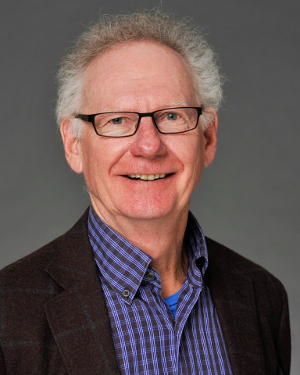
- Could It Happen Here?: Canada in the Age of Trump and Brexit
- Simon & Schuster Canada (2017)
“Could it,” we ask ourselves in dog parks, at dinner parties, or in the stands of local hockey arenas, “happen here?” Will we “catch Trumpism,” that storm of angry, isolationist and frequently nativist populism that has swept through not only the United States but also the United Kingdom in the Brexit era, Germany, France, Hungary, Poland and even redoubts of progressivism like the Netherlands?
There are Canadians who want “it” — or some version of “it” — to happen here. Jean-François Lisée won the Parti Québécois leadership in the fall of 2016 by promising to reduce immigration and ban the burka in public. Even the ruling Quebec Liberals held hearings on a proposed law that would make it illegal for anyone with her face covered to give or obtain public services.
Some Canadians have lost confidence in federal institutions and believe that we are admitting too many refugees from the Muslim-majority countries that produce fundamentalists and terrorists. There are clear parallels between readers of Breitbart News in the United States and devotees of Ezra Levant’s Rebel Media, a hard-right Internet news service that calls out political correctness and baits progressives. (“Racist university apartheid,” headlines a Rebel report on postsecondary institutions that offer “scholarships for refugees, not whites.”)
Analysts love to point out that many Canadians — especially those who live in large, dense cities with diverse populations — are living in a progressive bubble or fantasy land which allows them to assume that their benign views of newcomers, trans people or mixed-race couples are widely shared across society, when in fact many parts of Canada have little exposure to social diversity and are less favourably disposed to it.
There are dangers associated with this disconnect. In March 2017, veteran political journalist Michael Valpy noted that “persistent and deepening” economic pessimism was inflected with racism and xenophobia. He used the findings from an EKOS poll to offer up a stern reminder about how American pollsters and pundits so dramatically misread the American mood in 2016. Valpy noted that the political and media establishment should be wary of ignoring populist anger among those Canadians, especially on the right, who express fear or resentment about how the country is run.
“Those supporters are real people — and there are a lot of them,” Valpy wrote. “Dismissing them and their concerns, however crudely they may be stated at times — as the U.S. media did with Americans who flocked to Mr. Trump’s standard — is frankly more likely to increase their numbers and more deeply entrench their anger and their (justifiable) sense of being held in contempt by the mainstream media and political establishment.”
Political sentiments travel easily, like dandelion spores, across borders, oceans and even linguistic divides. The angry populist mood in the U.K. and the U.S. has emboldened anti-immigrant, isolationist politicians and right-wing parties in many parts of Europe, and visa versa. Canadians are no more immune to those trends than anyone else. We’re in a moment when simmering populist discontent, which never really goes away, has been given a voice and a standard-bearer and a whole lot of raw energy that can be used to embolden disgruntled nativists and recruit voters.
But those ideas land or take root in societies with their own distinctive strengths and weaknesses, histories, geographies, demographics, economies and value systems. Some countries drawn to xenophobic nationalism have generally happier citizens (e.g., Denmark and Switzerland); others are home to angrier residents who are attracted to authoritarian figures and tolerate inequality or higher levels of violence (such as the U.S.).
Consequently, any discussion about whether “it” could happen here demands that we move beyond the churn of public opinion polls and partisan punditry, and look instead at underlying measures of civic or social health: Can we passionately debate issues of great public interest without lapsing into gridlock or discourse poisoned by accusations? Can we ground our debates in some kind of common understanding of the pertinent facts? Do we have faith in our democracy and shared institutions, or do we hanker to destroy them? Can we recognize “outsiders” — whether recent immigrants, refugees, trans folk, Muslims or anyone else — as individuals or do we see them as targets for hatred?
One important answer to this question is, “Of course, it can happen here!” You needn’t look too far into the history books to find examples of societies that abruptly pivoted away from rights, democratic governance and religious tolerance. Sometimes, plain old bad luck intervenes and changes the course of the plot. But countries that have managed — either by intention or good fortune — to foster social resilience, reduce inequality and provide collective tax-supported government insurance against ill health or unemployment are more likely to be able to withstand the clarion calls from the Trumps of this world. Canada, as it turns out, is one such nation, although not the only one.
This isn’t a smug assertion of Canadian exceptionalism so much as an acknowledgement of our own recent political history. After episodes of raucous populism, surging anti-immigrant sentiment and even the rise (and subsequent fall) of socially conservative governments in some western provinces, Canadians already know what “it” looks like. In some sense, parts of Canada have been there and done that. The appetite for that form of politics is limited. After all, there are less raucous ways to achieve peace, order and good government. ![]()














Tyee Commenting Guidelines
Comments that violate guidelines risk being deleted, and violations may result in a temporary or permanent user ban. Maintain the spirit of good conversation to stay in the discussion.
*Please note The Tyee is not a forum for spreading misinformation about COVID-19, denying its existence or minimizing its risk to public health.
Do:
Do not: